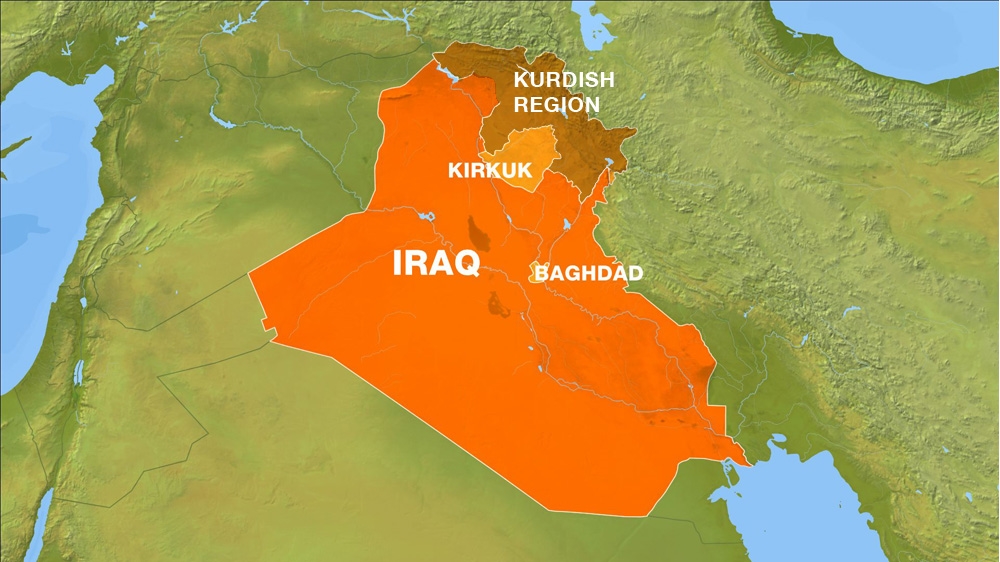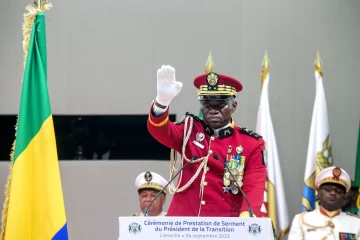Two weeks ago, the Kurdistan Regional Government of northern Iraq voted to confirm an independence referendum – a move that the federal government in Baghdad considers to be unconstitutional. The vote was widely, though not unanimously, supported by the Kurds of northern Iraq. Despite US resistance including threats to cut off aid, the referendum is happening today. Although the result of the referendum will not give any legal weight to the idea of a separate Kurdish state, it will still be an important milestone and it could make the status quo in the region look increasingly untenable. Leaders looking for creative ideas for solutions to problems in the region at large may find inspiration in the trajectory of the Iraqi Kurds in recent years.
There are over 30 million Kurds in the Middle East, forming around 20 percent of the populations of Iraq and Turkey, and 10 percent of the populations of Syria and Iran. They are the largest ethnic group in the region that does not have its own de jure state. However, in northern Iraq, they have been relatively successful in establishing their own de facto state.
During the First Gulf War, the UN Security Council passed Resolution 688 which formed the basis for France, the UK and the US to declare a no-fly zone in northern Iraq. Saddam Hussein’s Ba’ath regime withdrew from the area and the Kurdistan Regional Government (KRG) was established shortly after. Although formally a part of federal Iraq, Baghdad has no effective control over the territory and the KRG even has official representatives in other countries, and other countries have representatives in Erbil, the region’s capital, as well. The territory has seen reasonable economic success and its Peshmerga troops have been an effective force against ISIS, as well as gaining control of oil-rich Kirkuk after it was abandoned by Iraqi government forces during the ISIS offensive in 2014. The North is now the most stable part of Iraq and compares favourably with the rest of country which is struggling to maintain the cohesiveness of its territory against jihadist insurgents.

The story of the emergence of Iraqi Kurdistan as a de facto state has important implications for the future of state formation or state reconfiguration in the region. Although theorists traditionally see modern states as being born out of war (the need to extract revenue for fighting necessitated a state), the Iraqi Kurdistan case shows that state building can follow a more peaceful path. Essentially, the case of Iraqi Kurdistan shows that a state can be created out of the intervention of foreign powers to bring together social groups within the territory.
The Kurdistan Democratic Party (KDP), currently led by Masoud Barzani, was established by leftists and northern tribal Peshmerga in 1946. The party split in 1975 when Jalal Talabani formed the Patriotic Union of Kurdistan (PUK) with leftist support. In 1994, conflict over land and customs revenue led to civil war between the two parties. During the course of the fighting, the KDP allied itself with the Iraqi regime and the PUK with Iran. The war ended with the Washington Agreement in 1998, whereby the US pledged to protect the two sides from Iraqi regime interference on the condition that the two sides made peace.
The US wanted to unite the Kurds to curtail the influence of Iran and Saddam Hussein in northern Iraq for strategic reasons. The US also supported Iraqi regime change in the long-run. The Kurds continued to be important during the invasion of Iraq in 2003 because Turkey’s non-cooperation with US forces gave Kurdish unity the added importance of being the coalition’s route into Northern Iraq. Having been denied permission for US troops to pass through Turkey en route to Iraq, Kurdish forces played an important role in diverting some troops away from the main invasion force in the South. The KDP and PUK both realized that US support would help them in the long run, so US involvement, therefore, played a significant role in promoting Kurdish unity and state building.

Turkey was another key supporter of the KRG. This might seem surprising considering both the KRG’s aspirations to establish a Greater Kurdistan and the Turkish government’s hostility to Kurdish statehood, but the KRG and Turkey rely on each other to achieve crucial objectives. The Kurdish economy in Iraq depends almost exclusively on oil exports to stay afloat, and Turkey is their outlet into world oil markets. Good relations with the Turkish government are essential to the KRG to ensure that oil revenues keep flowing in. Turkey is willing to support the KRG (within the framework of federal Iraq), as it vies for influence with both the Kurdistan Workers Party (PKK) and its close partner in Syria, the Democratic Union Party (PYD), both of which Turkey seeks to neutralize in order to maintain its own territorial integrity. Turkey has therefore supported unity, if not statehood, for the Kurds of northern Iraq. So long as the KRG maintains its opposition to its more radical compatriots in Turkey and Syria, Turkey will remain a key supporter.
In a time when the future of several Middle Eastern and North African states is far from certain, it is worth learning from the experience of Iraqi Kurdistan that states can be formed out of domestic coalition building, with the support of external powers, and does not necessarily need to happen as an outgrowth of war. It would be wrong to call Iraqi Kurdistan a fully-fledged state: it is not a member of the UN, and most Peshmerga forces are still under the control of the parties rather than the government. However, the experience of the Iraqi Kurds in the creation of a de facto state may serve as an example to future state builders in the region.


